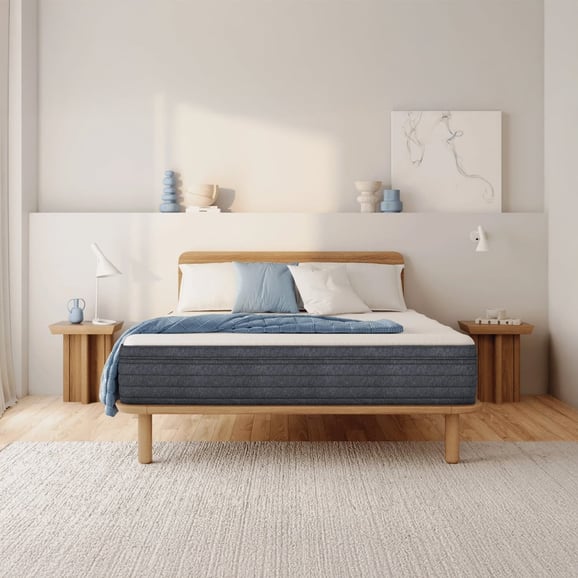It’s without a doubt now that our world has evolved in recent decades with further emphasis on technology and our engagement with it. Today, we cannot ignore the possibilities that the advancement of the world’s technology has created. And yet importantly, we cannot overlook the downsides to it.
A very common challenge in our homes today is the sleep time – screen time dilemma. Surely, as a parent, there have been those times your kids wouldn’t keep to bedtime, yes? You might be surprised to find out that their time on TV or mobile devices might be the cause.
Studies on Sleep-related factors were conducted in ‘Sleep in the Modern Family‘ by the National Sleep Foundation in 2014. The findings show that about three in four teenagers, and 96% of teenagers between the ages of 15 and 17, bring tech devices into the bedroom.
It also shows that, in total, the average adolescent gets up to nine hours of screen time per day. If we consider that we’ve got only 24 hours in a day and that there are other activities to attend, we’d realise how much time that is.
Further research also showed that about 57% of teens who use technological devices in the bedroom have sleep problems.
This sleep issue is said to escalate when these children have and use a television or other small screen devices, such as smartphones and laptops, in the bedroom.
How does screen time affect sleep time?
The sleep-wake cycle of humans is controlled by a kind of natural rhythm the body keeps – the circadian rhythm. This natural, internal process regulates our sleep by acting with sunlight as its cue.
So, as a direct result, we are more active when it’s bright and day outside, unlike when nighttime falls. Melatonin is a body hormone that induces sleepiness. When it grows dark at about evening time and eventually night, your body produces a lot of melatonin. The next thing is that you feel drowsy and then fall asleep, signalling the end of your day.
Excessive use of screen devices like tablets, smartphones, computers, television screens, and other devices will increase the risks of sleeping disorders.
Your kids may find a hard time falling asleep because those devices give off a characteristic blue light that is similar to sunlight. The “short-wavelength” blue light keeps the body alert and tricks the body into believing it is still daytime.
Normally, the body should produce more melatonin at night to induce sleep, but due to this tech-induced ‘hoax,’ the body responds by producing less melatonin, interfering with the normal sleep routine.
Hence, the more time you spend on your screen, the more issues you’d have with sleeping. And that surely applies the same to your kids. You don’t want that, do you?
Effects that too much screen time may have on your kids’ sleep routine
Insomnia
After using digital screens, the body doesn’t have much melatonin produced already to do the work of falling asleep.
That delay in melatonin release greatly reduces the urge to sleep. So, you may have your kids still hitting up the house with noise or too much activity when it’s already past their bedtime.
It may also lead to uncomfortable sleep experiences when they finally go to bed.
Sometimes, your child may get little or no sleep, making them quite dizzy and sleepy the next day. And trust sleep to take its toll – you hear complaints of your child sleeping at school.
Since there’s sunlight during the day, the body would reduce how much melatonin it produces. So, the issue now may be further lack of sleep leading to the condition known as insomnia. At that point, the child’s body wants to rest, but sleep is far from reach.
The case of insomnia becomes worse when we consider the daily tasks that we have to carry out each day. Most times, the child or individual battles sleep during the day – in classes, places of worship, etc.
It’s like owning a sleep debt that will cause distress to the child until it is settled. And because screentime isn’t cut short, symptom persists.
Mental illness
Most households treat the sleep time of their wards lightly. That shouldn’t be so, though. It should be a well-treated topic because mental health risks are involved.
A certain study has shown that about 60 percent of its participants with insomnia had a case of mental illness afterward.
Sleeplessness leads to a condition known as ‘sleep deprivation psychosis .’ Psychosis can be described as when lack of sleep causes a disconnection from reality. This ‘disconnection’ can present in the forms of hallucinations or delusional thinking. It’s a known effect of severe and prolonged sleep deprivation.
According to the Harvard Medical School, the quality of your mental health is always in sync with your sleep patterns.
What you should know, though, is that sometimes, mental illness is what causes insomnia. However, in this context, the screentime causes insomnia which, in turn, causes mental issues.
Depression
Apart from the effects screen time may have on your kids’ sleep time, did you also know it could negatively affect their social lives? Insomnia could lead to depression or other major depressive disorders.
Depression and sleep problems are very much related. For instance, people with sleep issues or insomnia cases have a much higher risk of getting depressed than people who get a good night’s sleep.
Your little children can begin to develop foreign feelings and withdraw themselves away from parents and friends.
Of course, there could be other causes, but have you monitored their screen time yet? Or do you still think it’s not that necessary?
Managing the sleep-screen ratio
As I hinted at the start of this article, it is impossible not to recognise the advantages of these technological devices. Many things are being achieved with this technology, and we surely can’t just throw it all away. And so the question keeps popping up; what’s the way forward?
Below are certain tips that would help you manage your child’s sleep time.
- Make clear-cut rules and timeframes to regulate how your kids use the ‘screens.’
Have a sit-down discussion with your family and decide how it will be going forward. Set the times and boundaries as is healthy and convenient for everyone. It would be best if you collected the phones and iPads at bedtime, so the children will be able to sleep.
Some families may go as far as confiscating phones once it hits 6 pm, while some do not even allow their children to use phones at all. That’s not what we advise, though. For the tech growth that we are embracing, it’s just good enough that parents make sure the kids don’t have access to their phones at night.
Although it states ‘children’ in the highlight, the rules should also apply to adults. If the parents or other adults in the house can key into the set patterns, the kids would be encouraged to comply. Besides, it’s healthy for everyone.
The adults should key into this too. Although it’s not a lasting solution, shields and glasses help reduce the intensity of the rays coming from the screens.
We may have to use the screens for longer periods on some days. Whether it’s to complete a science or research project with the Internet before the deadline on the next day or something like that, using the UV-ray glasses would help reduce the risks of eye problems.
- Encourage your child’s socialization during the day
Have you stopped to think about why your kid is on-screen most of the time? Maybe it’s because that is the only way they know how to socialise. That could be true and if so, it becomes a very unhealthy situation there.
If you limit screen access for such children, it may worsen their already bad social habits, and you don’t like how that would end up for your child. So you have to make sure your kid loosens up a bit, and you encourage them to get more social, make more friends, and have fun.
Frequently Asked Questions
What is the best time for a child to sleep?
A child’s sleep time can be based on many factors, like their age, their area, and even the season or weather. While this isn’t necessary, note that any time from 7 pm till 9 pm is fine.
Do newborn babies have circadian rhythm?
New babies don’t yet have any circadian rhythms, and they typically sleep in short spurts of two to four hours throughout the day and night. The newborn infant will develop a sleep-wake pattern only after birth.
A rhythm of cortisol develops at about 8 weeks of age. They start producing melatonin and sleep efficiency develop at approximately 9 weeks. Body temperature rhythms and circadian genes develop at about 11 weeks.
How long should a child sleep?
The American Academy of Sleep Medicine recommends that kids aged 6–12 years regularly sleep 9–12 hours per 24 hours, and teenagers aged 13–18 years should sleep 8–10 hours per 24 hours.














